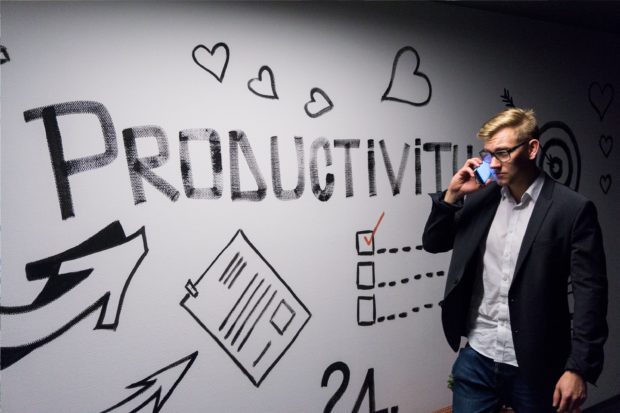How to Beat Common Productivity Killers

Everyone wants to be more productive. Whether you’re a C-Suite manager or are serving up burgers at a local fast-food chain, being productive at work can improve your self-efficacy and lead to promotions and recognition.
However, in today’s digital world, you’ll encounter dozens of productivity killers every day. Notifications on your phone can pull you out of the “flow state” and uncomfortable work environments can undermine your physical health and productivity.
Fortunately, you can overcome most productivity killers. A little planning and preparation can help you improve your physical and mental health, too.
Sleep
Sleep is integral to your physical health and mental well-being. Sleep supports your physical growth and aids cognition during the daytime. Your body essentially “takes out the trash” while you get some shut-eye, meaning you can work to your potential during the day.
However, in the digital age, phones, TVs, and tablets threaten to undermine your sleep quality. Blue-light emitting devices can impact your health, including disturbing your circadian rhythm and contributing to sleep deprivation. That’s because blue-light devices promote the production of cortisol — the hormone responsible for stress and alertness — while blocking the production of melatonin.
Improve your sleep quality by excising screens from your bedroom. Turning off devices thirty minutes before bed allows your brain to slip into “sleep mode” and you’ll fall asleep much quicker. Further, improve your sleep quality by bringing your room temperature down to 60 – 67 F and redecorating your bedroom with neutral tones and black-out blinds to improve sleep quality.
Stress
Stress is a natural part of life. Without some short-term, acute stress, you’d never work at your full potential. However, long-term, chronic stress is a productivity killer that you need to steer clear of. Stress can decrease your productivity at work as it often leads to fatigue and decreased concentration.
Overcoming stress can be tricky. Start by addressing the root cause of your stress. Are you overworking? Do your colleagues cause you undue stress? Do you feel stretched thin due to multiple responsibilities?
Once you’ve identified the cause of your stress, open lines of communication to alleviate your stress. Let your boss know that you’re feeling overworked or ask your family for help with child-raising responsibilities. There’s no shame in admitting that stress is getting the better of you and addressing the issue can alleviate your worries.
If you’re still finding that life stress is killing your productivity, you may want to see a therapist. Therapists are trained mental health professionals who understand the struggles you face and can give you strategies to get through stressful periods. They’ll help you become more resilient and will help you advocate for yourself.

Multitasking
Many people mistakenly equate productivity to multitasking. This is a major misstep, as needlessly multitasking will split your attention and kill your productivity. Computers can multitask successfully; humans usually cannot. Multitasking also diminishes your ability to learn and causes untold human errors.
You wouldn’t drive and text at the same time, so don’t try to respond to emails while taking a call from a client. Instead of multitasking your way through the day, set a clear schedule and work on one task at a time. This will help you manage your time more effectively and help you keep track of your productivity.
Focusing on one task at a time can help you avoid distractions, too — you’re far less likely to end up on Instagram or TikTok when you’re fully focused on a task that needs to be completed in the next hour. So, switch your phone to silent, block Internet sites that tend to be a distraction, and fully engage with one task at a time.

Procrastination
We’ve all procrastinated on important projects at one point in our lives. Whether it’s turning in a college essay or finalizing a quarterly report, procrastination happens to the best of us. However, you cannot make procrastination into a habit. Procrastination leads to sub-par work and can undermine your daily productivity.
Research psychologist and DePaul University professor, Dr. Joe Ferrari, explains that people mistakenly believe that procrastination helps them be more productive and produce their best work. However, in reality, procrastinating tricks you into believing that you’ve done a stellar job even when you’ve produced poor work. Your brain is relieved that you’ve finished the task that you’ve been putting off and rewards you for completing the task — even if you’ve made mistakes.
Overcome your procrastination habit by ditching productivity guilt and rewarding yourself for getting work completed early. Focus on giving yourself a behavioral or physical reward — like going to the gym or a fresh cup of coffee — whenever you complete a task early. Don’t punish yourself when you procrastinate, but be honest about your performance and acknowledge the fact that you could have done a better job had you avoided procrastination.
Conclusion
Productivity is key to your overall happiness and self-efficacy. You can improve your day-to-day productivity by scheduling your day in advance and making time to rest and relax. Even small changes, like dropping the temperature of your room to 60F can make a big impact on your ability to focus on your daily tasks.
This guest post was authored by Ainsley Lawrence

Ainsley Lawrence is a writer who loves to talk about how business and professionalism intersect with the personal, social, and technological needs of today. She is frequently lost in a good book.
*******
Ms. Career Girl strives to provide valuable insights you can use. To see more from our columnists and guest authors, check these out! Or subscribe to our weekly email featuring our latest articles. We’re also present on Medium!

